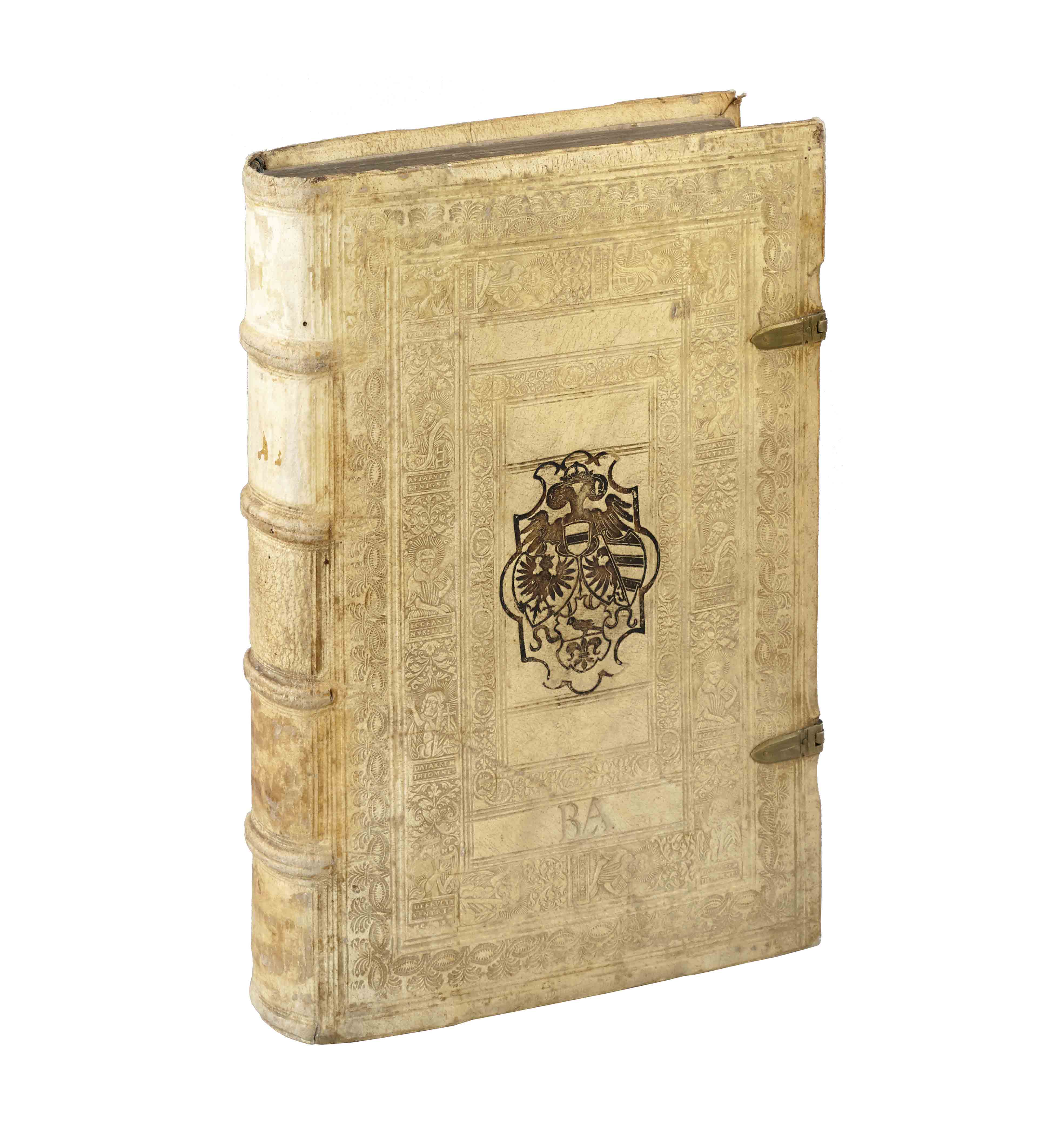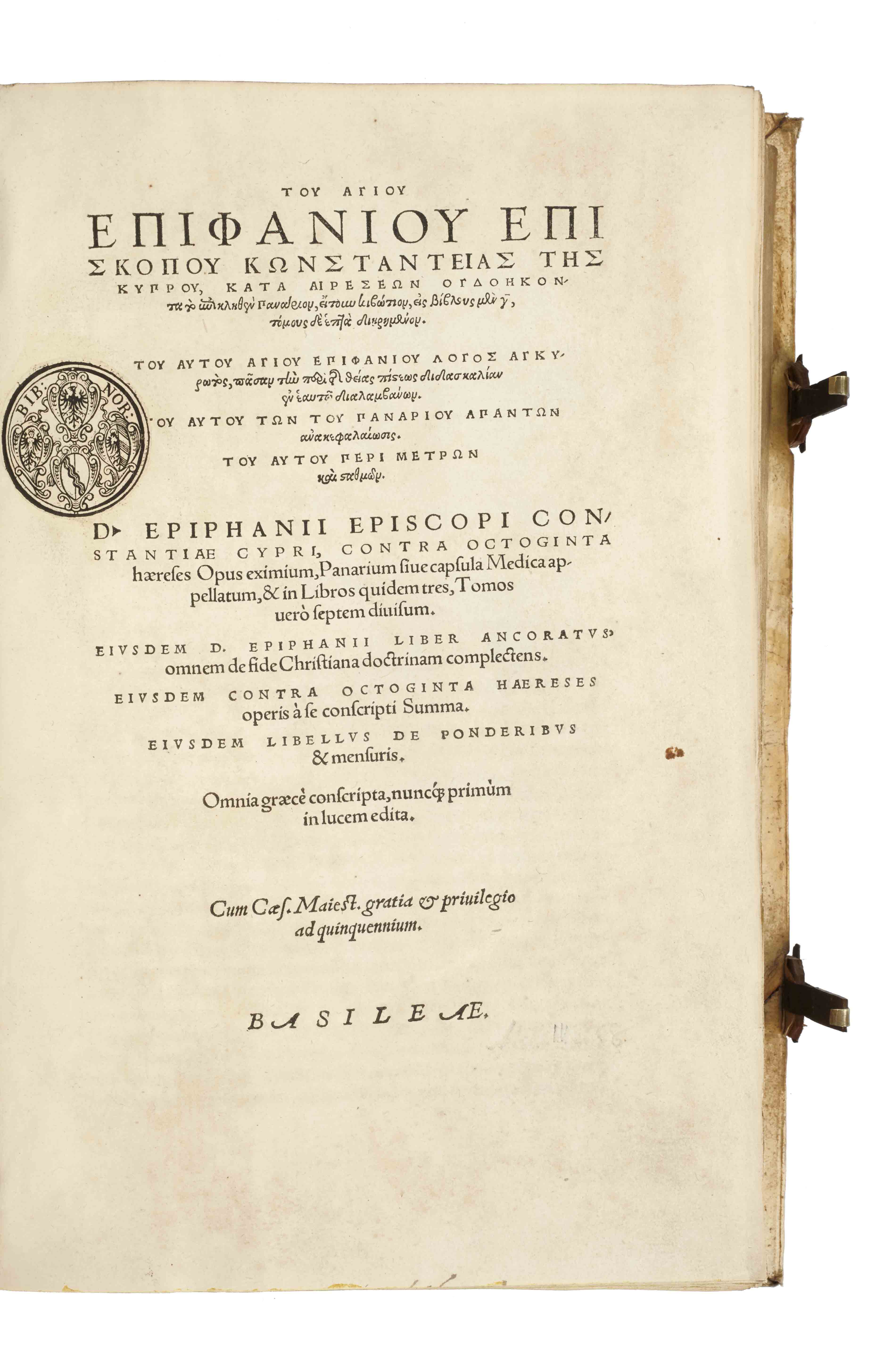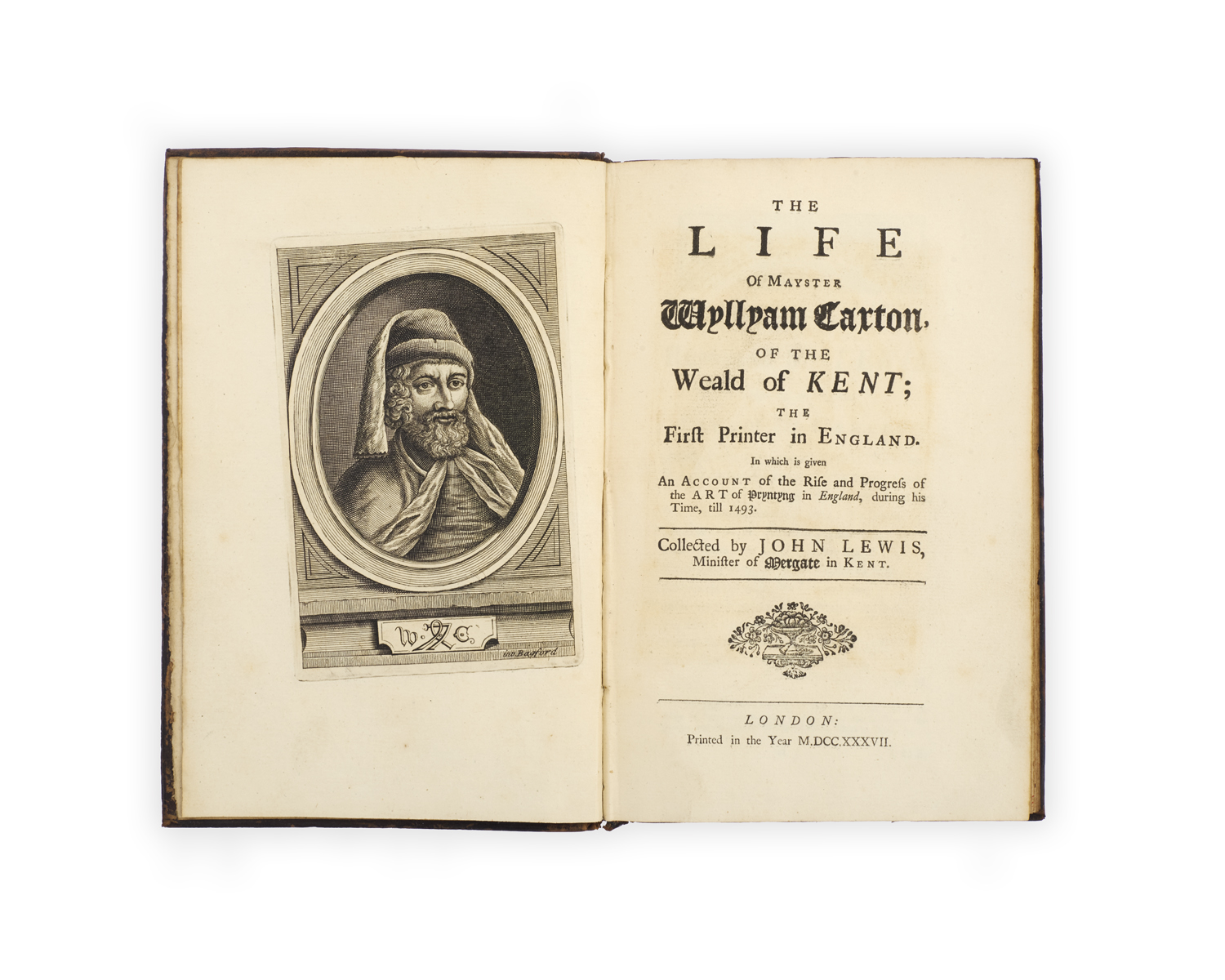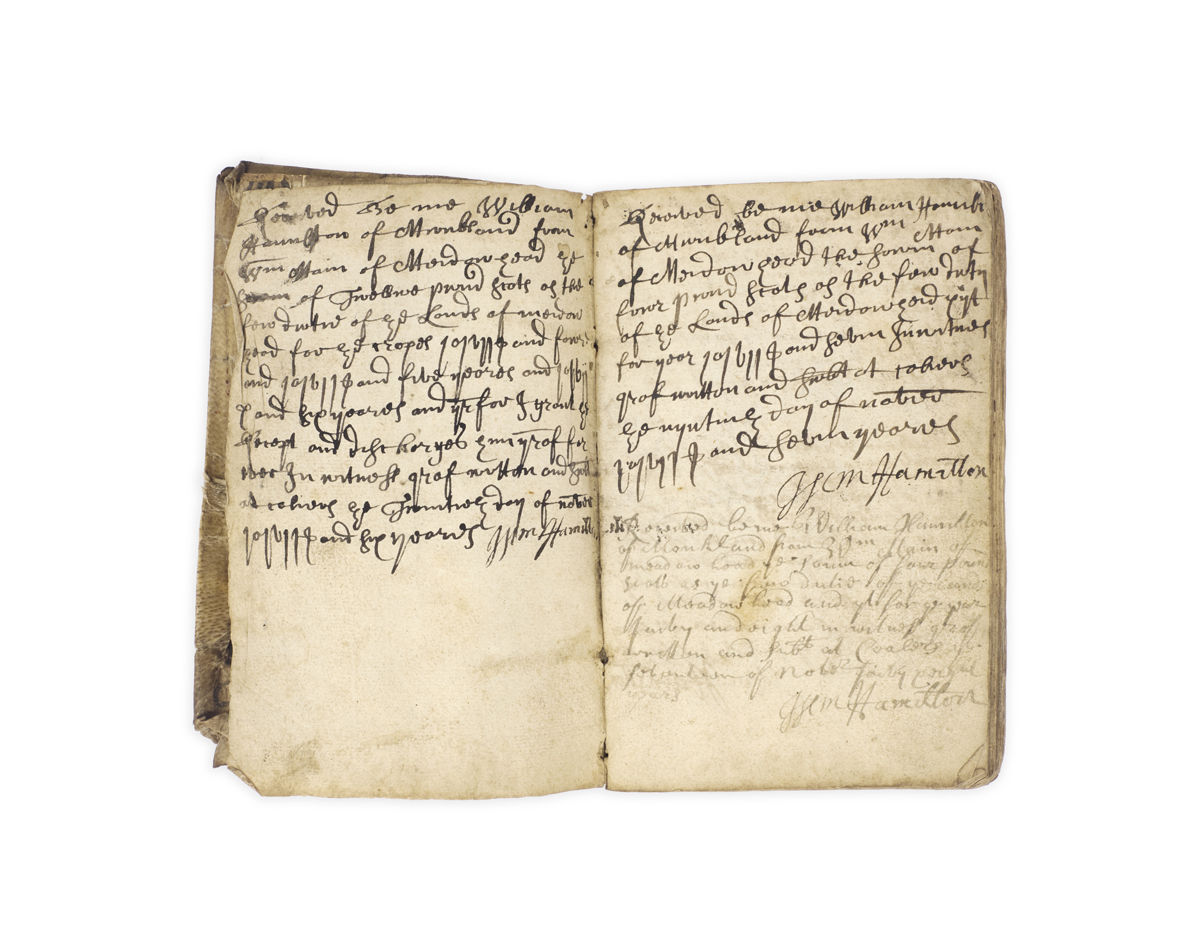

EDITIO PRINCEPS – ON HERESIES
EPIPHANIUS.
Κατα αιρεσεων ογδοηκοτα το επικληθεν Παναριον … Contra octoginta haereses opus eximium, Panarium sive capsula medica appellatum, et in libros quidem tres, tomos vero septem divisum … Omnia graece conscripta, nuncq[ue] primum in lucem edita.
Basel, [Johann Herwagen, 1544].
Folio, text in Greek, pp. [vi], [2 (blank)], 543, [1]; woodcut printer’s device on title and on verso of final leaf; some very light oxidisation on first and last few leaves, but an excellent, crisp copy in near-contemporary blind-stamped German pigskin, covers decorated using three roll tools of which one bears the initials ‘P M’ (see Haebler I p. 303 nos. 1 and 4), lower cover with a central stamp of the anointing of David within an oval (Haebler I, p. 303 III), central gilt arms of the city of Nuremberg (incorporating the arms of the Baumgartner family) in centre of upper cover and, below, the monogram ‘BLA’ stamped in blind, two clasps; lightly soiled and rubbed, scratch on lower cover, traces of paper labels in compartments of spine, gilt arms oxidised (presumably due to a high silver content).

Added to your basket:
Κατα αιρεσεων ογδοηκοτα το επικληθεν Παναριον … Contra octoginta haereses opus eximium, Panarium sive capsula medica appellatum, et in libros quidem tres, tomos vero septem divisum … Omnia graece conscripta, nuncq[ue] primum in lucem edita.
Editio princeps of the Greek text of Epiphanius’s great compendium of heresies, in a particularly attractive and well-preserved contemporary pigskin binding.
Epiphanius (310–403) followed the monastic life in Egypt as a young man before returning to his native Judaea to found a monastery at Besanduk. ‘In 367 his reputation for asceticism and learning brought about his nomination as Bishop of Constantia (Salamis) the metropolis of the Island of Cyprus. For nearly forty years he fulfilled the duties of the episcopate, but his activity extended far beyond his island. His zeal for the monastic life, ecclesiastical learning, and orthodoxy gave him extraordinary authority … [He] composed (374–7) the “Panarion” or “Medicine chest”, i.e. a stock of remedies to offset the poisons of heresy. This work is divided into three books comprising in all seven volumes and treating eighty heresies. The first twenty heresies are prior to Jesus Christ; the other sixty deal with Christian doctrine … Sometimes his ardour prevents him from inquiring carefully into the doctrines he opposes. Thus, on his own avowal, he speaks of Apollinarianism on hearsay. At Constantinople he had to acknowledge the Origenist monks whom he opposed that he was not acquainted with either their school or their books, and that he only spoke from hearsay. There is, however, in the “Panarion” much information not found elsewhere’ (Catholic Encyclopedia). A Latin translation was published the previous year.
Provenance: Nuremberg city library, with circular armorial bookplate on title and arms on upper cover of binding. From 1578 to 1586 the warden of the city library was Hieronymus Baumgartner (1533–1602), who seems to have had all the volumes in the library stamped with the city’s arms (incorporating those of his own patrician family).
VD16 E-1643 and E-1650; Adams E-250.

